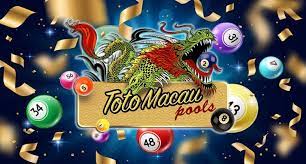The Evolution of Betting: From Ancient Games to Modern Markets
AlexJones
- 0
- 742
Betting has been a part of human culture for thousands of years, reflecting both our desire for excitement and our quest for fortune. From the dusty streets of ancient civilizations to the sleek, digital platforms of today, the evolution of بهترین سایت انفجار offers a fascinating glimpse into human behavior and societal change.
Ancient Beginnings
The origins of betting can be traced back to ancient societies, where gambling was often intertwined with religious and social rituals. In Ancient Greece, citizens placed wagers on athletic competitions during the Olympic Games, while the Romans enjoyed betting on chariot races and gladiatorial combat. These early forms of betting were not just about winning money but also about status and demonstrating one’s knowledge of the outcomes.
The Middle Ages: Betting in Disguise
During the medieval period, betting continued to thrive but often in less formalized ways. The rise of card games in the 14th century, believed to have originated in China and spread to Europe, introduced a new dimension to betting. The gambling houses of the time were often associated with taverns and inns, providing a social space for people to place their bets.
The Rise of Modern Betting
The 17th and 18th centuries saw significant changes in the betting landscape. The creation of official horse racing tracks and betting markets in England, such as the famous Newmarket Racecourse, helped formalize the industry. This period also saw the establishment of the first betting shops, providing a more structured environment for punters to place their wagers.
The 20th Century: Betting Goes Mainstream
The 20th century brought about major transformations in the betting industry. The introduction of legal betting shops and casinos in various countries helped to legitimize and regulate the industry. The development of sports betting, particularly on football and other major sports, became increasingly popular. The rise of technology further revolutionized betting with the advent of online platforms in the late 1990s. This allowed bettors to place wagers from the comfort of their homes, making betting more accessible and widespread.
The Digital Age: Betting at Your Fingertips
In the 21st century, betting has become more sophisticated with the integration of technology. Online betting platforms, mobile apps, and live betting have transformed how people engage with gambling. The convenience of placing bets from anywhere and at any time has contributed to the rapid growth of the industry.
Moreover, advancements in data analytics and algorithms have introduced new types of betting, such as in-play betting and prediction markets. These innovations allow bettors to make more informed decisions and engage with betting in ways that were previously unimaginable.
The Future of Betting
As we look to the future, the betting industry continues to evolve. The integration of artificial intelligence and virtual reality promises to further enhance the betting experience. AI can provide more personalized betting recommendations and detect patterns that may influence outcomes, while virtual reality could create immersive betting environments.
Additionally, the increasing focus on responsible gambling and regulation aims to address concerns about addiction and ensure fair play. As betting becomes more embedded in digital ecosystems, balancing innovation with ethical considerations will be crucial.
Conclusion
From ancient rituals to cutting-edge technology, the journey of betting reflects broader changes in human society. While the methods and environments have evolved, the fundamental allure of betting remains unchanged: the thrill of anticipation and the hope of winning. As the industry continues to advance, it will undoubtedly bring new challenges and opportunities, shaping the future of betting for generations to come.
